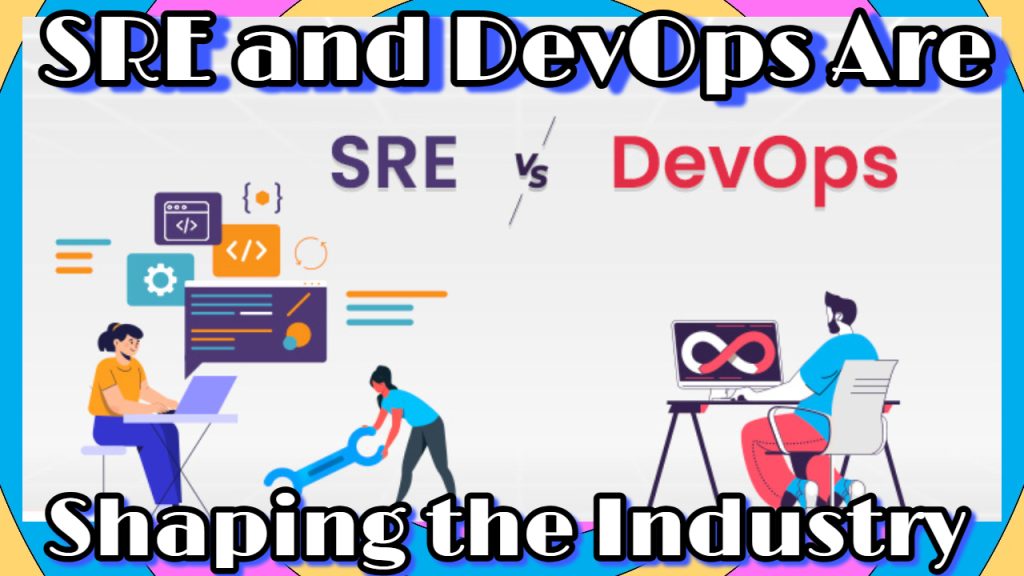
The landscape of IT support is undergoing a profound transformation, driven by the adoption of Site Reliability Engineering (SRE) and DevOps. These methodologies are redefining how organizations approach IT operations, emphasizing efficiency, collaboration, and innovation. As businesses strive to stay competitive in a rapidly changing digital environment, SRE and DevOps are emerging as critical components of a modern IT strategy. This blog explores how these practices are shaping the future of IT support and the role of DevOpsSupport.in in facilitating this transformation.
Understanding the Evolution of IT Support
The Traditional IT Support Model
Traditionally, IT support was characterized by a reactive approach, where issues were addressed as they arose. This model often resulted in long response times, inefficiencies, and limited collaboration between development and operations teams. The focus was on maintaining the status quo rather than driving innovation.
The Shift to SRE and DevOps
In contrast, SRE and DevOps represent a proactive, integrated approach to IT support. By fostering collaboration between development and operations teams, these methodologies enable organizations to deliver high-quality software quickly and reliably. SRE applies software engineering principles to operations, focusing on building scalable and reliable systems. DevOps emphasizes automation, continuous integration, and continuous delivery (CI/CD), ensuring that software is developed and deployed efficiently.
Research Insights
A study by IDC found that organizations adopting DevOps practices experience a 20% improvement in time-to-market and a 19% reduction in operational costs. Additionally, Google’s State of DevOps Report highlights that elite performers practicing DevOps deploy 973 times more frequently than low performers.
Key Benefits of SRE and DevOps
1. Increased Agility and Speed
SRE and DevOps enable organizations to respond quickly to changing business needs by automating routine tasks and streamlining workflows. This agility allows teams to develop and deploy new features faster, keeping pace with market demands and enhancing competitiveness.
- Continuous Integration and Delivery: Automated testing and deployment pipelines ensure that code changes are integrated and delivered seamlessly, reducing manual effort and minimizing errors.
- Infrastructure as Code (IaC): By managing infrastructure through code, teams can provision and scale resources dynamically, adapting to varying workloads with ease.
2. Enhanced Reliability and Performance
SRE focuses on building systems that are resilient and reliable. By incorporating reliability engineering principles, organizations can ensure that their applications perform consistently, even under heavy load.
- Error Budgets: SRE teams use error budgets to balance innovation and reliability. This approach encourages teams to innovate while maintaining acceptable levels of system reliability.
- Proactive Monitoring: Advanced monitoring tools and techniques enable teams to detect and address issues before they impact users, ensuring a seamless experience.
3. Improved Collaboration and Culture
DevOps fosters a culture of collaboration, where development, operations, and other stakeholders work together to achieve common goals. This cultural shift breaks down silos and encourages open communication, leading to better decision-making and problem-solving.
- Shared Responsibility: By promoting shared responsibility for the entire software lifecycle, DevOps enhances accountability and empowers teams to take ownership of their work.
- Blameless Postmortems: SRE practices include conducting blameless postmortems to analyze incidents and identify improvements without assigning blame, fostering a culture of continuous learning.
4. Security Integration (DevSecOps)
Security is a critical aspect of modern IT support. DevSecOps integrates security practices into the DevOps process, ensuring that security is embedded at every stage of the software development lifecycle.
- Automated Security Testing: Tools like Snyk and Checkmarx enable teams to automate security testing, identifying vulnerabilities early in the development process.
- Security as Code: By managing security configurations through code, organizations can enforce security policies consistently and reduce the risk of misconfigurations.
The Role of DevOpsSupport.in in IT Support Transformation
As organizations navigate the complexities of implementing SRE and DevOps, expert guidance and support are essential. DevOpsSupport.in offers a comprehensive suite of services to help companies and individuals embrace these methodologies effectively.
DevOps Support Services
- Consultation and Strategy Development: DevOpsSupport.in provides expert consultation to develop tailored DevOps strategies that align with organizational goals and objectives.
- Toolchain Integration: Assistance with selecting and integrating the right tools and technologies to support DevOps practices, ensuring a seamless transition.
- Training and Support: Comprehensive training programs and ongoing support equip teams with the skills and knowledge needed to thrive in a DevOps environment.
SRE Support Services
- Reliability Engineering: Implementing best practices in Site Reliability Engineering to enhance system reliability and performance, ensuring high availability and uptime.
- Monitoring and Alerting: Setting up robust monitoring and alerting systems to detect and respond to incidents in real-time, minimizing downtime and disruption.
- Incident Management: Developing effective incident response and management processes to ensure quick resolution and continuous improvement.
DevSecOps Support
- Security Integration: Integrating security practices into DevOps workflows to ensure that security is a fundamental part of the development process.
- Automated Security Testing: Implementing automated security testing tools to identify and remediate vulnerabilities early in the development cycle.
Freelancing Opportunities
DevOpsSupport.in also offers freelancing opportunities for companies and individuals seeking specialized expertise in DevOps, SRE, and DevSecOps. Freelancers provide a flexible and cost-effective solution for organizations looking to enhance their IT support capabilities without the need for full-time staff.
- Access to Expertise: Gain access to a pool of experienced professionals with specialized skills and knowledge in DevOps, SRE, and DevSecOps.
- Flexibility and Scalability: Hire freelancers on a project-by-project basis, allowing you to scale your resources according to your needs.
- Cost-Effective Solutions: Freelancing offers a cost-effective alternative to hiring full-time staff, enabling you to manage your budget effectively.
More topics on Bug fixing: